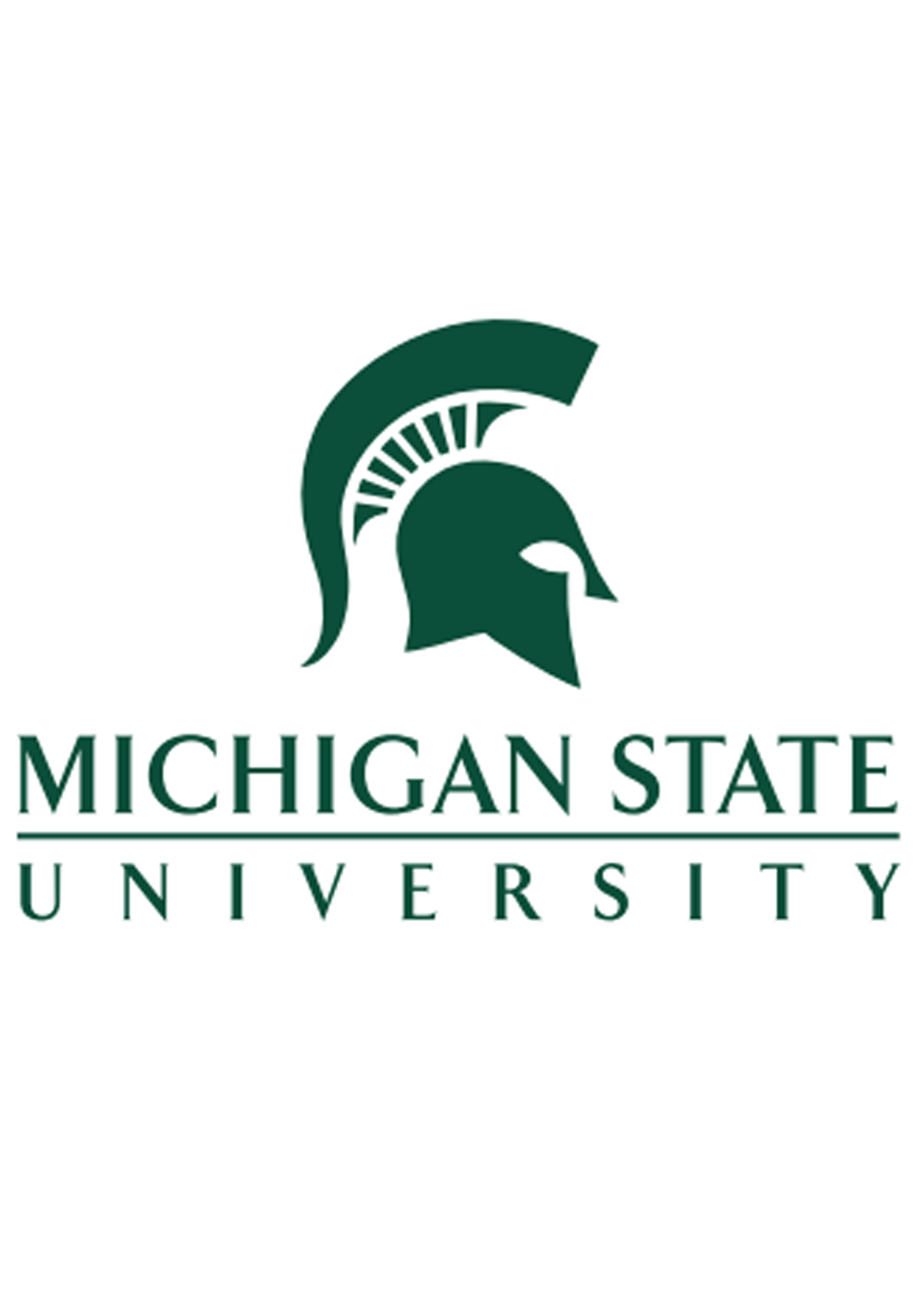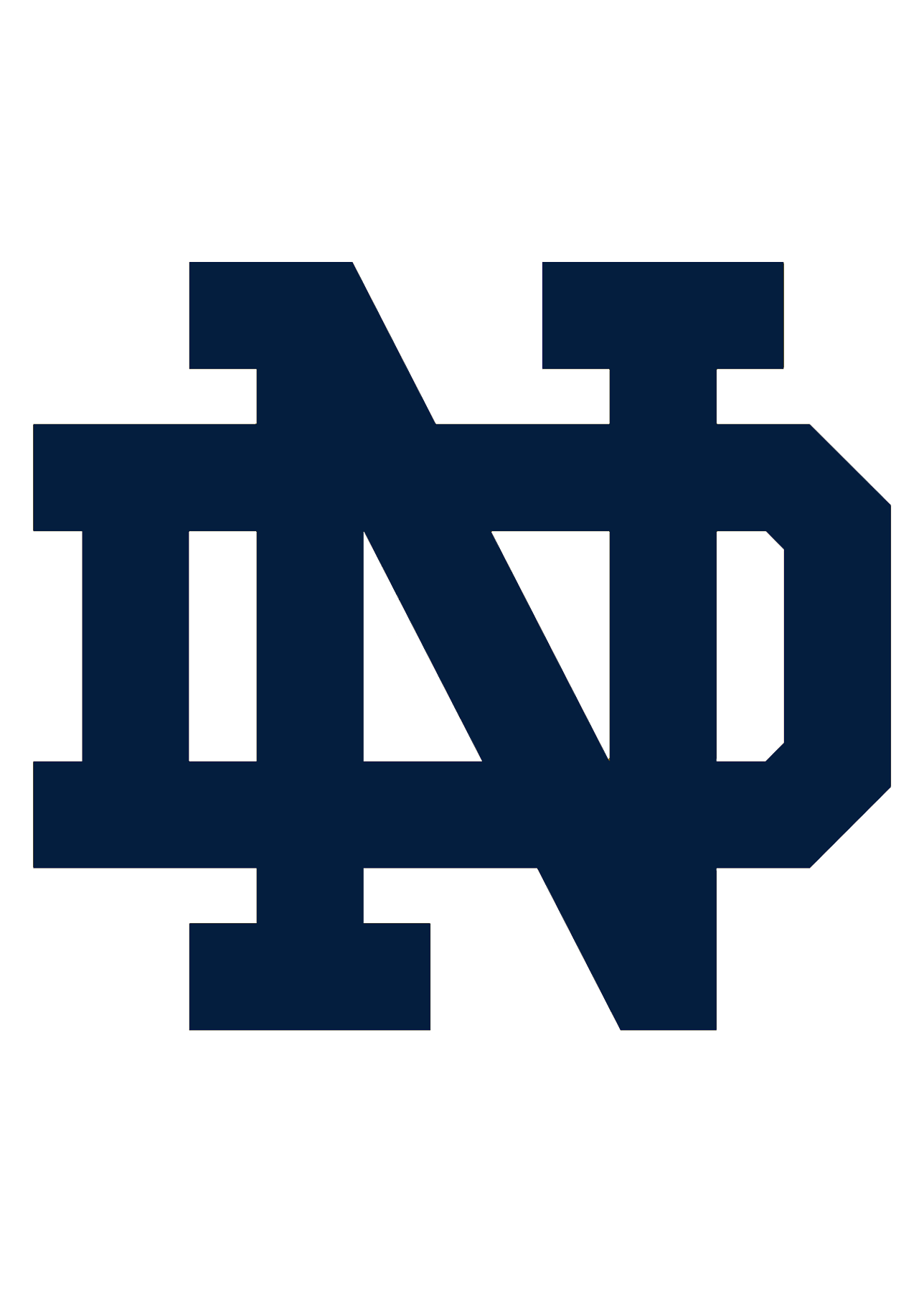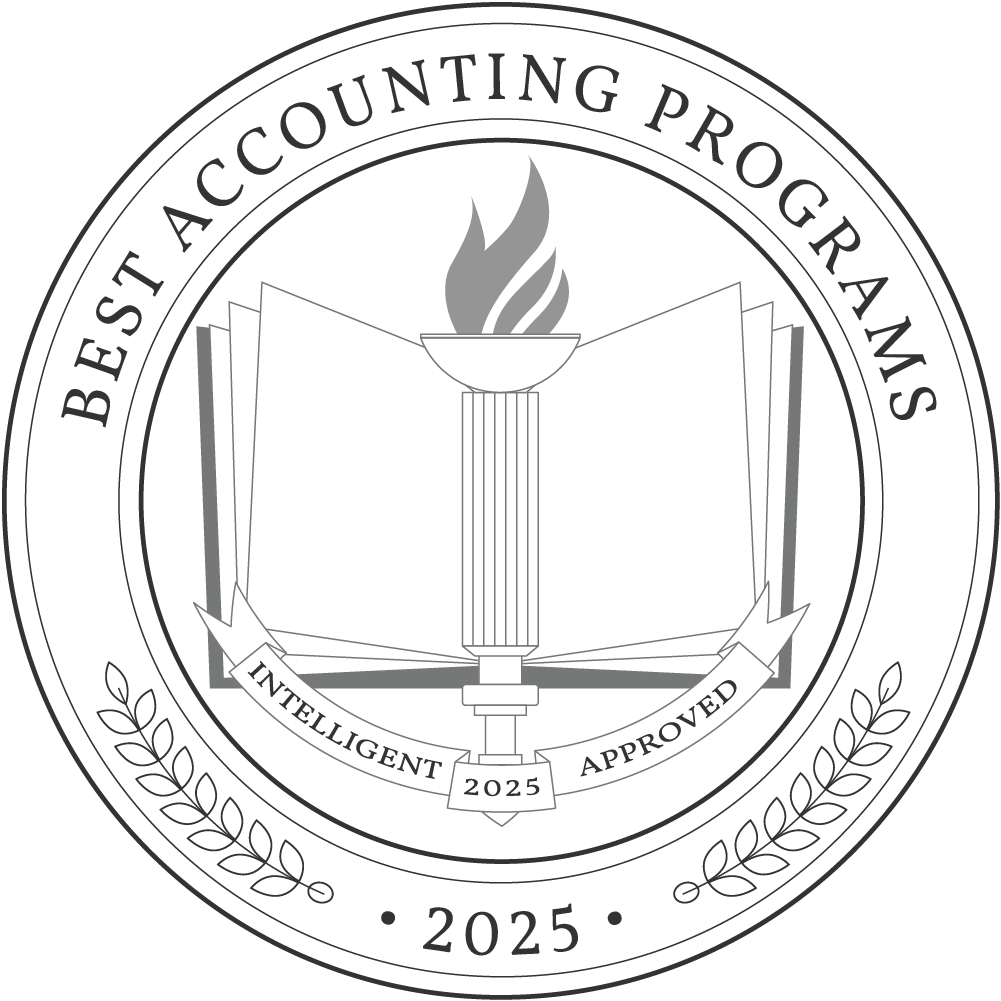If you’re interested in business, enjoy crunching numbers, and have a talent for solving problems, accounting may be a strong option for your educational future. Graduates from accounting degree programs find successful careers as accountants, accounting managers, and forensic accountants, as well as corporate controllers, auditors, and chief financial officers (CFO). In 2022, the average starting salary for careers requiring a bachelor’s degree in accounting was $78,000.
The cost of an accounting degree can vary widely from one school to the next. In 2022, the average cost of tuition and fees for a four-year accounting degree program was $16,618, while postgraduate degrees in accounting cost an average of $19,749. These fees may be higher if you plan to live on campus or need to purchase supplies, but ultimately, the cost of a degree in accounting is an investment in your future career.
Why Trust Us
The Intelligent.com Higher Education Team is dedicated to providing students with independent, equitable school and program rankings and well-researched resources. Our expert-driven articles cover topics related to online colleges and programs, paying for school, and career outlooks. We use data from the U.S. Department of Education’s College Scorecard, the National Center for Education Statistics, and other reputable educational and professional organizations. Our academic advisory team reviews content and verifies accuracy throughout the year for the most current information. Partnerships do not influence rankings or editorial decisions.
- Analyzed over 2,000 national, accredited, and nonprofit colleges and universities
- 800+ rankings pages are reviewed and updated yearly
- Content is informed by reputable sources, surveys, and interviews with academic advisors and other experts
- Over 100 data points are reviewed for accuracy and quality throughout the year, including sources
How we rank schools
Our list features the best Accounting degree programs at top colleges nationwide. Each school featured is a nonprofit, accredited institution — either public or private — with a high standard of academic quality for post-secondary institutions.
We evaluated each school’s program on tuition costs, admission, retention and graduation rates, faculty, reputation, and the student resources provided for online students. We collected data from trusted sources like the National Center for Education Statistics, individual school and program websites, school admissions counselors, and other data sources. Then, we calculated the Intelligent Score on a scale of 0 to 100 based on the following criterion:
Academic Quality:
- Admission rate versus enrollment rate
- Retention rate of students who return after year one
- Accreditation status (regional and programmatic)
- Nonprofit status, both private and public institutions
Graduation Rate
- Overall graduation rate
- Total number of currently enrolled students, including diversity metrics
- Student-to-faculty ratio
Cost and ROI
- In-state and out-of-state per-credit tuition rates and fees
- Required credits to graduate
- Earning potential after graduation
- Availability of federal student loans, scholarships, and other financial aid options
Student Resources
- Available student services for online-only and hybrid programs
- On-campus amenities like tutoring centers and the number of libraries
Read more about our ranking methodology.
Best 50 Accredited Accounting Degree Programs
FiltersInstitution Type
Status
- Intelligent Score
- Alphabetically By University Name
- Acceptance Rate
- Enrollment
- In-state Graduate Tuition
- Out-of-state Graduate Tuition
- In-state Undergraduate Tuition
- Out-of-state Undergraduate Tuition

University of Illinois at Urbana - Champaign
Intelligent Score: 98.58In-state: $14,317
Out-of-state: $33,824
In-state: $15,016
Out-of-state: $15,016
SAT: 1200-1460
ACT: 27-33
In-State: $599
Out-of-State: $1,215
On-Campus
Association to Advance Collegiate Schools of Business
124

University of Pennsylvania
Intelligent Score: 97.04In-state: $53,166
Out-of-state: $53,166
In-state: $37,678
Out-of-state: $37,678
SAT: 1460-1570
ACT: 33-35
The top accounting degree program offered by a private institution on our list of the best accounting degree programs is the undergraduate accounting program offered at the University of Pennsylvania. The program at Penn is one of the top in the country, but it is also one of the most exclusive programs to get into, holding a nine percent admissions rate. However, Penn's undergraduate accounting program offers a world-class education from well-respected faculty and focuses on the study of financial and cost accounting, tax planning, and auditing. Penn is one of the country's oldest and most respected private institutions. With their accounting program at the Wharton School of Business, students will learn how to become a leader in their respective fields.
$1,954
On-Campus
Middle States Commission on Higher Education
132

University of Maryland
Intelligent Score: 96.07In-state: $8,824
Out-of-state: $34,936
In-state: $13,158
Out-of-state: $13,158
SAT: 1270-1480
ACT: 30-34
Resident: $412
Non-Resident: $1,613
On-Campus
Middle States Commission on Higher Education
120

University of Wisconsin - Madison
Intelligent Score: 95.82In-state: $9,273
Out-of-state: $37,161
In-state: $10,728
Out-of-state: $10,728
SAT: 1260-1460
ACT: 27-32
Resident: $485
Non-Resident: $1,710
On-Campus
Association to Advance Collegiate Schools of Business
120

Ohio State University
Intelligent Score: 94.49In-state: $10,615
Out-of-state: $32,599
In-state: $11,560
Out-of-state: $11,560
SAT: 1210-1430
ACT: 26-32
The most affordable accounting degree program on our list is the Bachelor of Science in Accounting program offered at Ohio State University. This program costs students just over $296 per credit and has an Intelligent Score of 97.52, giving students a bang for their buck. The 121-credit hour program offers a variety of course topics, including economics principles, business law, international business, advanced accounting, and more. One of the best benefits of this program is that it offers students opportunities to study abroad and take their accounting skills overseas to continue their education, and internship opportunities.
$492
On-Campus
Association to Advance Collegiate Schools of Business
121

Indiana University-Bloomington
Intelligent Score: 94.46In-state: $9,815
Out-of-state: $36,194
In-state: $9,786
Out-of-state: $9,786
SAT: 1120-1350
ACT: 24-31
In-State: $294
Out-of-State: $1,012
On-Campus
Association to Advance Collegiate Schools of Business
120

North Carolina State University
Intelligent Score: 93.98In-state: $6,535
Out-of-state: $26,654
In-state: $9,095
Out-of-state: $9,095
SAT: 1230-1410
ACT: 27-32
Resident: $272
Non-Resident: $1,225
On-Campus
Association to Advance Collegiate Schools of Business
120

University of Texas at Austin
Intelligent Score: 93.47In-state: $11,448
Out-of-state: $40,032
In-state: $12,028
Out-of-state: $12,028
SAT: 1210-1470
ACT: 26-33
The accounting program at the University of Texas - Austin is the top accounting degree program offered by a public institution on our list of the best accounting degree programs. With the help of their executive advisory board, McCombs prepares students to be leaders at the management level of corporations and businesses. Students are exposed to innovative ideas and real-world issues taught by experienced executives in the school of business. Students in this program must take 21 credit hours of accounting courses and can choose between a Corporate Track or Financial Institutions Track concentration. Courses include financial statement analysis, managerial accounting, auditing, and more.
In-State: $565
Out-of-State: $2,029
On-Campus
Association to Advance Collegiate Schools of Business
120

University of Illinois Chicago
Intelligent Score: 92.97In-state: $14,317
Out-of-state: $33,824
In-state: $15,016
Out-of-state: $15,016
SAT: 1200-1460
ACT: 27-33
In-State: $465
Out-of-State: $1,113
On-Campus
Association to Advance Collegiate Schools of Business
120

Northern Arizona University
Intelligent Score: 92.43In-state: $10,243
Out-of-state: $16,248
In-state: $10,309
Out-of-state: $10,309
SAT: N/A
ACT: N/A
Resident: $378
Non-Resident: $920
On-Campus
Association to Advance Collegiate Schools of Business
120

Texas A&M University Mays Business School
Intelligent Score: 91.4In-state: $8,395
Out-of-state: $36,849
In-state: $6,775
Out-of-state: $6,775
SAT: 1160-1380
ACT: 26-32
In-State: $676
Out-of-State: $1,618
On-Campus
Association to Advance Collegiate Schools of Business
120

University of Utah
Intelligent Score: 89.15In-state: $7,412
Out-of-state: $26,017
In-state: $6,666
Out-of-state: $6,666
SAT: 1130-1350
ACT: 22-29
Resident: $258
Non-Resident: $890
On-Campus
Association to Advance Collegiate Schools of Business
122

Wake Forest University
Intelligent Score: 88.58In-state: $56,722
Out-of-state: $56,722
In-state: $38,650
Out-of-state: $38,650
SAT: N/A
ACT: N/A
$2,120
On-Campus
Association to Advance Collegiate Schools of Business
120

Binghamton University
Intelligent Score: 88.33In-state: $7,070
Out-of-state: $24,660
In-state: $11,310
Out-of-state: $11,310
SAT: 1290-1450
ACT: 29-32
Resident: $295
Non-Resident: $1,090
On-Campus
Association to Advance Collegiate Schools of Business
126

Michigan State University
Intelligent Score: 87In-state: $15,555
Out-of-state: $40,384
In-state: $18,858
Out-of-state: $18,858
SAT: 1100-1300
ACT: 23-29
In-State: $521
Out-of-State: $1,434
On-Campus
Association to Advance Collegiate Schools of Business
120

University of Notre Dame
Intelligent Score: 86.66In-state: $57,192
Out-of-state: $57,192
In-state: $57,050
Out-of-state: $57,050
SAT: 1400-1550
ACT: 32-35
$2,591
On-Campus
Association to Advance Collegiate Schools of Business
122

UF Warrington College of Business
Intelligent Score: 86.25In-state: $4,477
Out-of-state: $25,694
In-state: $10,770
Out-of-state: $10,770
SAT: 1290-1460
ACT: 29-33
Resident: $149
Non-Resident: $856
On-Campus, Online
Association to Advance Collegiate Schools of Business
120

University of Delaware
Intelligent Score: 86.22In-state: $12,730
Out-of-state: $34,160
In-state: $34,164
Out-of-state: $34,164
SAT: 1150-1330
ACT: 25-30
Resident: $585
Non-Resident: $1,570
On-Campus
Association to Advance Collegiate Schools of Business
123
How to Choose an Accounting Degree Program
Choose your area of study
Accounting degrees are available as a Bachelor of Arts or Bachelor of Science, so think about how you’d like to spend your time at your chosen institution — and what you’d like to do after you graduate. The coursework and career paths for accounting degrees generally point to two different tracks: certified public accountant (CPA) and master of business administration (MBA).
CPA accounting tracks involve more focused math and computer science coursework. These accounting degree programs come through a college of science and tend to include degrees such as:
- Associate of Science (AS) in accounting
- Bachelor of Science (BS) in accounting
- Bachelor of Accountancy (BAcc or BAcy)
- Master of Science in Accountancy (MSA)
- Master of Science in Taxation (MST)
- Master of Accountancy (MAcc or MAcy)
- Master of Professional Accountancy (MPAcc or MPAcy)
Students who earn an accounting degree through a college of arts learn to use a broader application of accounting in the business world. They take more electives and courses in liberal arts to prepare for a career in business administration. These degrees include:
- Associate of Arts (AA) in accounting
- Bachelor of Arts (BA) in accounting
- Bachelor of Arts in Business Administration (BBA)
- Master of Business Administration (MBA) in accounting
Graduates of accounting degree programs may also earn professional certifications to work in specialized positions like CPA, certified financial analyst (CFA), certified internal auditor (CIA), or certified management accountant (CMA).
Research schools and programs
To ensure that your time, money, and hard work are well-spent, choose an accounting degree program from an accredited institution. Programmatic accreditation agencies such as the Association to Advance Collegiate Schools of Business (AACSB) verify that accounting programs within a business school are committed to high levels of academic integrity and student success. For agencies that accredit an entire institution, consult the U.S. Department of Education’s list of institutional accrediting agencies.
Students who want to take math-based accounting programs should inquire about the mathematics and computer science classes at their chosen school. For students interested in pursuing a future MBA, learn more about the school’s business classes. Research each program’s faculty and successful graduates whose careers you’d like to emulate.
Also, consider practical factors in your choice. If you can attend school full-time but need to live on campus, look into housing options at your desired institutions. If you’re a part-time student looking to advance your career with an accounting degree, consider a school with night classes or flexible schedules.
Narrow your list to two or three programs. If you can, tour each school — walk through the campus and ask questions to tour guides, current students, and advisors. Talk to an admissions counselor or program representative about the requirements of your degree and how to best succeed at their school. If you can’t visit a school in person, take a virtual tour and stay in email contact with the admissions office.
Prepare for tests and applications
When you’re ready to apply to one or more programs, visit the school’s admissions page for a list of requirements and a link to the application. Make sure that your test scores (including the SAT, ACT, GRE, and GMAT) meet the requirements. Retake any tests as necessary, and ensure that your verbal scores are as competitive as your math scores to set yourself apart from fellow applicants with lower verbal scores.
Talk to your current school to get letters of recommendation and sealed transcripts of prerequisite programs. If you’re currently working in an accounting-related job, ask for a letter of recommendation from a supervisor or employer that addresses your accounting skills. Any experience you have in the field is an indicator that you’ll succeed in an accounting degree program.
Select your program
When it’s time to choose between two or more programs, revisit your career aspirations and interests. Compare each program’s coursework and faculty. Consider which program best meets your needs and preferences, including factors like cost, location, and special features like a strong alumni organization or certain level of prestige.
Determine how you’ll pay for your degree
Estimate how much your accounting degree program will cost, including tuition, fees, room and board, educational supplies, and any other expenses that may come up.
If you need help paying for your degree, see how much financial aid you can receive with the Free Application for Federal Student Aid (FAFSA) form. If you have a job, ask if your employer offers a tuition reimbursement program. For information about other funding options, contact your school’s financial aid office.
What Can You Expect From an Accounting Degree Program?
Accounting degree programs build students’ critical thinking skills with courses in financial analysis, taxation, risk management, and accounting principles. Two-year accounting degree programs focus on bookkeeping and clerking skills to prepare students for jobs in these fields, while four-year programs prepare students to pass the CPA exam and work in higher-profile accounting positions, such as auditors or chief financial officers (CFO).
Postgraduate accounting degrees take one to two years to complete, and they apply previous accounting experience and skills to advanced accounting and business concepts. Students who earn an MSA, MBA, or any other master’s degree in accounting leave their schools prepared to be industry leaders.
Potential courses you’ll take in an accounting degree program
- Financial Accounting. Students master technical accounting skills, such as financial statement analysis and financial reporting. They work with income statements and statements of cash flows to make inferences about the relationship between business and accounting.
- Taxation. Study the foundations of taxation, income tax, taxation of transactions, and the multiple ways tax laws can affect how a business runs. The scope of a taxation course ranges from small businesses to large corporations, applying the same concepts at each level.
- Business Law. In a business law course, students examine how business enterprises and ethics work within the legal framework. The curriculum in this area addresses business law in the context of real estate, contracts, torts, and the Constitution.
- Auditing. Students apply the foundations of accounting to external and internal auditing processes. They make connections between these practices as they study auditing principles and reporting requirements.
- Information Systems. For students pursuing careers in financial reporting, an information systems course focuses on using databases, financial software, and other informational technology to analyze financial transactions.
Accounting Degree Frequently Asked Questions
How do I apply to an accounting degree program?
Application requirements and deadlines for specific accounting degree programs are usually listed on a school’s website. Common requirements include minimum GPA and test scores, transcripts, a personal essay, a resume, and letters of recommendation.
If you have any questions about the application process, contact the admissions office at your prospective school. They may have additional recommendations for your specific accounting degree program — and ways to set your application apart from others.
How much does an accounting degree cost?
The cost of your accounting degree program depends on the school you choose. Tuition and fees for an associate degree in accounting cost an average of $3,859 in 2022. The average cost for a bachelor’s degree was $16,618, and the average cost of a master’s degree was $19,749. Other costs associated with an accounting degree may include room and board, transportation, materials and supplies, and general living expenses.
How long does it take to earn an accounting degree?
It takes two to six years to complete a full accounting program, depending on the level of the degree you’re earning. Associate degree programs require 60 credit hours and last between two and three years, while 120-credit bachelor’s degrees typically take four years to complete. Master’s degrees in accounting take two years (30 to 60 credit hours) after a four-year bachelor’s degree, unless you take an accelerated one-year program.
These timelines are adjustable depending on your schedule needs. Part-time accounting degree programs take longer to complete, while taking additional credit hours during a grading period can accelerate your program time.

